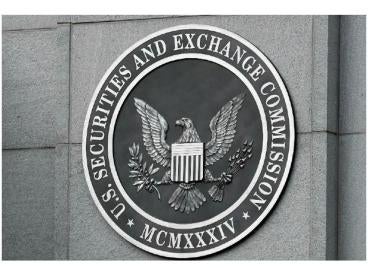In a first of its kind case, the SEC last week charged an investment adviser to a hedge fund with, among other things, retaliating against an employee who reported allegedly illegal trading activity to the agency. The SEC exercised its authority under a Commission rule adopted in 2011 under the Dodd-Frank Act, which permits enforcement actions based on retaliation against whistleblowers.
Under the Exchange Act, employers may not “discharge, demote, suspend, threaten, harass, directly or indirectly, or in any other manner discriminate against, a whistleblower in the terms and conditions of employment because of any lawful act done by the whistleblower.” 15 U.S.C. § 78u-6(h)(1)(A). The Act also provides that the Commission “shall pay an award or awards to 1 or more whistleblowers who voluntarily provided original information to the Commission that led to the successful enforcement of the covered judicial or administrative action, or related action, in an aggregate amount equal to (A) not less than 10 percent, in total, of what has been collected of the monetary sanctions imposed in the action or related actions; and (B) not more than 30 percent, in total, of what has been collected of the monetary sanctions imposed in the action or related actions.” Id. § 78u-6(b)(1).
The alleged retaliation at issue centered on the investment adviser’s former head trader, who reported allegedly improper principal transactions to the SEC under the SEC’s Bounty Program. According to the SEC, the investment adviser engaged in trades with an affiliated broker-dealer on behalf of one of its hedge fund clients. The SEC alleged that the investment adviser’s owner had a conflicted role as owner of the brokerage firm while subsequently advising the hedge fund client. In an attempt to satisfy written disclosure and consent requirements, the investment adviser formed a conflicts committee to review the transactions, which consisted of the investment adviser’s CFO and chief compliance officer. The SEC alleges that the conflicts committee was also conflicted because the two-person committee reported to the investment adviser’s owner and because the investment adviser’s CFO also served as CFO of the investment adviser’s affiliated broker-dealer. As a result of this conflict, the SEC contended the investment adviser did not provide effective written disclosure to its hedge fund client, and it did not obtain consent to engage in the transactions.
According to the SEC Order, the trader subsequently informed the owner of the investment adviser that he had reported these potential securities law violations to the SEC. After the company learned of the whistleblower’s submission, it allegedly engaged in a series of retaliatory actions to strip the trader of his responsibilities. Approximately one month after doing so, the whistleblower resigned citing constructive discharge. Of note, the former trader filed a lawsuit against the investment adviser, its owner, and its affiliated broker-dealer under § 78u-6(h)(1)(B), which permits whistleblowers to bring enforcement actions, alleging unlawful retaliation, but the lawsuit was voluntarily dismissed in December 2012. It is not clear why the lawsuit was dismissed or whether the dismissal was related to a settlement.
In settling the matter with the SEC, the investment adviser neither admitted nor denied the charges. It agreed to pay $2.2 million, which includes disgorgement of $1.7 million, prejudgment interest of $181,771, and a civil penalty of $300,000. The Order expressly provides that the disgorgement relates to administrative charges relating to the principal transactions. The Order is silent, however, on whether the civil penalty of $300,000 is related to those principal transactions or has something to do with the retaliation claim. The Commission acknowledged in its order that the principal transactions were effected at the prevailing market price and the affiliated broker-dealer did not charge a markup or commission on the transactions. Significantly, the Order does not contain any finding that the funds were harmed by inadequate prices and the fact that the disgorgement relates to administrative charges strongly suggests there was a lack of monetary injury to the funds.
The SEC has authority to award the whistleblower between 10 and 30 percent of the recovery because the tip led to sanctions in excess of $1 million. According to Andrew J. Ceresney, Director of the SEC’s Division of Enforcement, a whistleblower is eligible for a whistleblower award. We have previously pointed out that the SEC intends to vigorously protect whistleblowers by using it authority under Dodd-Frank to bring retaliation claims against employers in a previous post: “Arbitration Agreements and Whistleblower Protections.” This case is proof.




 i
i


